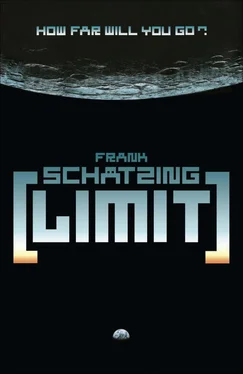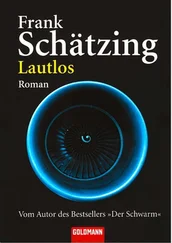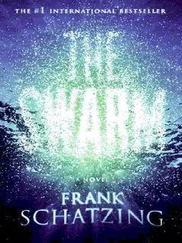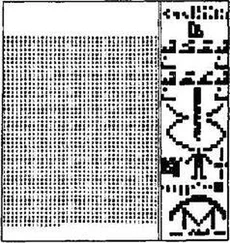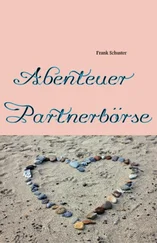‘No market for a water-supplier, then,’ laughed Tautou.
‘No, the OSS is on the way to complete self-reliance.’
‘Hmm, self-reliance.’ Karla thought for a moment. ‘So you could soon be declaring independence, could you? Or the whole Moon. By the way, who does the Moon actually belong to?’
‘Nobody,’ said Julian. ‘According to the lunar treaty.’
‘Interesting.’ Karla’s Modigliani eyebrows raised, arches of amazement, her face an oval full of ovals. ‘Given that it doesn’t belong to anyone, it’s not short of people.’
‘That’s right. The treaty urgently needs to be rewritten.’
‘Perhaps to say that the Moon belongs to everybody?’
‘Correct.’
‘So the people who got there first. Or who are already up there. America and China.’
‘By no means. Anyone else can follow them.’
‘ Can anyone follow them?’ she asked slyly.
‘That, my dear Karla,’ smiled Julian, ‘is exactly the point.’
* * *
Finn O’Keefe tried to find solace in physics.
The dressing process had gone on for ages, until at last the group hung, packed and helmeted, in the hermetic seclusion of the airlock, a clinically illuminated, empty room with rounded edges. Hand-grips ran along the walls; a display provided information about pressure, temperature and atmospheric composition. Nina explained that this chamber was considerably larger than the other hatches distributed around the OSS. Once Peter Black had joined them, the group now comprised eight people. A hiss, growing quieter and finally fading away, indicated that the air was being sucked out, then the outer bulkheads glided silently open.
O’Keefe gulped.
In thrall to early human fears of plunging into the abyss, and with butterflies in his stomach, he stared outside. Part of the roof extended before his eyes. He didn’t know what he had expected: an outlet, a balcony, a gangway, regardless of the fact that none of it made any sense up here. The circular level had no floor – it was an open structure with a diameter of four hundred metres, surrounded by a steel ring, massive enough that railway lines could have passed through it, and fitted with payloads and manipulators. A radial arrangement of supporting constructions led from the torus to the other areas. Beyond that solar park, glittering in the sunlight, radiators circulated and spherical tanks hung from crane-like cantilevers. Batteries of floodlights illuminated huge hangars, the birthplaces of future spaceships. Tiny astronauts floated below the belly of a steel giant, overseeing the installation of rows of seats by robot arms. Bizarre machine-creatures, half man, half insect, crisscrossed the area, carried parts in locust arms, crawled with segmented grasping claws around the scaffolding and girders, carried out soldering work and riveted prefabricated components. Their android faces seemed to have been inspired by the character Boba Fett, the always helmeted contract killer from Star Wars , leading inevitably to the conclusion that Julian Orley had been involved in their development – Orley with his enthusiasm for science-fiction films, who always managed to transform quotations into innovations.
Beyond the hatch a chasm yawned.
The vertical structure of the OSS stretched almost three hundred metres below O’Keefe, and below it lay the Earth, an unimaginable distance away. He hesitated, felt his heart thundering. Although he knew about the irrelevance of his weight, it seemed sheer madness to pass beyond the edge, like leaping from a skyscraper.
Physics, he thought. Trust in the law of God.
But he didn’t believe in God anyway.
Beside him, Nina Hedegaard and Peter Black sailed sedately outside, turned around and presented the mirrored fronts of their helmets. ‘The first time is always a breakthrough,’ he heard the Danish woman say. ‘But you can’t fall. Just try to adjust your way of thinking.’
Got me, thought O’Keefe.
A moment later he was given a push, slipped out over the edge towards the two guides and right past them. Startled, he gasped for air and braced himself as he flew, but there was nothing there to stop him. Dispatched on a journey of no return, he drifted away. The idea of being lost in space, of being slung out into the void, flashed through his mind and he started flailing wildly, which only made him look all the more ridiculous.
* * *
‘Look,’ Laura Lurkin said. ‘It’s the ladies’ programme.’
Amber thought she could physically feel the corrosive effect of the mockery. She knew from Lynn that the fitness trainer, a menacingly sculpted block of humanity with a wrestler’s crotch, a troll’s arms and a soothing voice, didn’t particularly care for space tourists. Her attitude was based on her conviction that private individuals had no business being anywhere higher up than the current passenger flight-paths. Lurkin was a former Navy Seal, hardened in the fire of geopolitical conflicts. When Olympiada, Miranda, Rebecca, Momoka and Amber turned up at the spa area like a delegation of fun-hungry First Ladies, Lurkin’s initial reaction had been, quite reasonably, to make fun of them, albeit in a moderately affable tone. After all, it was her job to keep orbital travellers fit, not to depress them.
‘You’ve got to go, Amber! Please! We’ve got the EVA, the guided tour through the scientific area, the multimedia performance: I’d have been happy if we could have distributed the silly women across the three groups, but they wanted their beauty programme. I’m glad we don’t have to deal with Paulette, but—’
‘I’d actually rather come to your presentation, Lynn.’
‘I know. I’m sorry, believe me! But someone has to give those four the feeling that we’re making them just as welcome as all the others, who want more from an orbital trip than a bit of sweating and peeling and having their spots squeezed. I’d do the job myself, but I can’t!’
‘Oh, Lynn. Does it have to be like that? Tim and I—’
‘They accept you as a representative, as a hostess.’
‘But I’m not the hostess.’
‘No, but you are in their eyes. You’re an Orley. Please, Amber!’
That pleading tone!
‘Okay, fine, whatever. But put me on the second space-walk this afternoon!’
‘Oh, Amber, let me kiss you! You can walk all the way to Jupiter, I’ll make the sandwiches myself! Thank you!’
* * *
So here it was, the ladies’ programme.
The fitness centre occupied two modules, elliptically flattened like the accommodation tubes. In the upper part there was a real sauna, without wooden benches, admittedly, but with straps for the hands and feet and generously sized windows, as well as a steam sauna, whose rounded walls copied the stars in the form of hundreds of tiny electric bulbs. In the crystal cave you could drift through droplets of ice-cold water that was sprayed into the room and then sucked back out again, in the quiet zone you could listen to celestial music, read or snooze. A floor further down, various fitness devices, massage rooms and strong hands waited for the stressed-out part-time astronauts.
‘—indispensable in space!’ Lurkin was saying. ‘Zero gravity is all well and good, but it contains a lot of dangers that shouldn’t be underestimated, if you’re exposed to it over a long period. You’ll already have noticed certain changes in yourself. Warming in the head and chest, for example. Immediately after the start of zero gravity, more than half a litre of blood rises from the lower regions of the body to the thorax and head. You’ll get apple cheeks and what astronauts call a ‘puffy face’. It’s a nice effect, by the way, because it compensates for wrinkles and makes you look younger. But not in the long term, unfortunately. Once you get back to Earth, gravity will tug at your tissues just as it always has done, so enjoy the moment.’
Читать дальше
